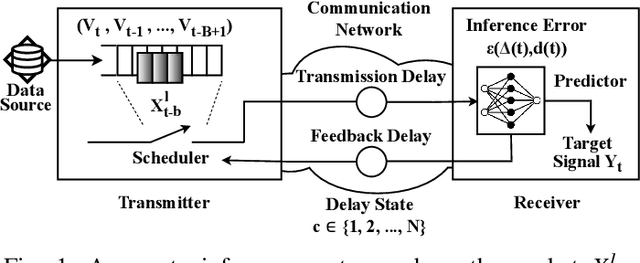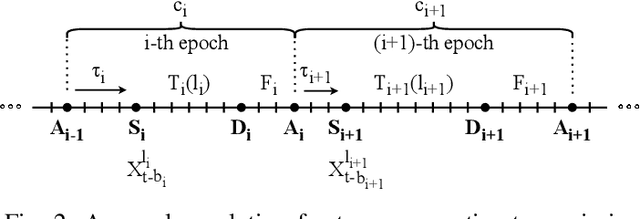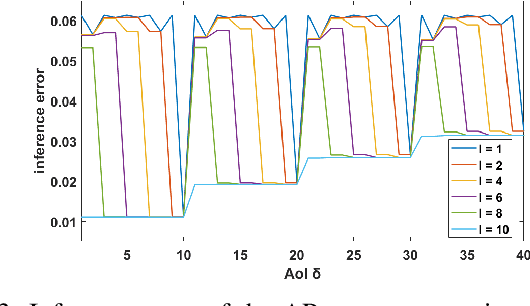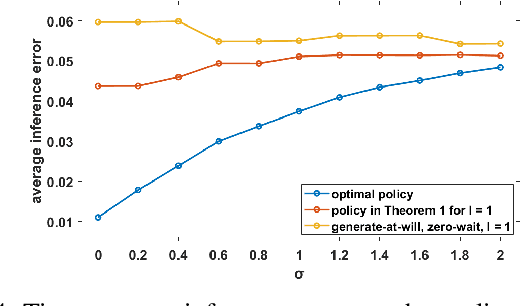Goal-Oriented Communications for Real-time Inference with Two-Way Delay
Paper and Code
Oct 11, 2024



We design a goal-oriented communication strategy for remote inference, where an intelligent model (e.g., a pre-trained neural network) at the receiver side predicts the real-time value of a target signal based on data packets transmitted from a remote location. The inference error depends on both the Age of Information (AoI) and the length of the data packets. Previous formulations of this problem either assumed IID transmission delays with immediate feedback or focused only on monotonic relations where inference performance degrades as the input data ages. In contrast, we consider a possibly non-monotonic relationship between the inference error and AoI. We show how to minimize the expected time-average inference error under two-way delay, where the delay process can have memory. Simulation results highlight the significant benefits of adopting such a goal-oriented communication strategy for remote inference, especially under highly variable delay scenarios.
 Add to Chrome
Add to Chrome Add to Firefox
Add to Firefox Add to Edge
Add to Edge